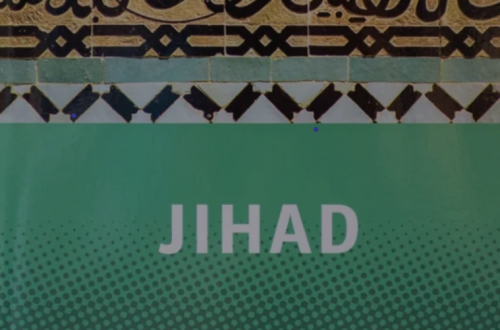This is a guest post by Raziq, cross-posted from The Spittoon
****
What’s wrong with Syed Qutb? I’ve heard this said many times by different people. Some see him as a hero, others the inspiration behind terrorist movements like al-Qaeda. There are even those, like Inayat Bunglawala, who see him as nothing more than a little controversial. In this article I will be taking a brief look at Qutb’s life and ideas, and why he is still admired by militant Islamist movements today.
Early Career
Syed Qutb was born in 1906 in Musha in the Asyut province of Upper Egypt. In his early twenties he moved to Cairo and worked as a teacher for the Ministry of Public Instruction. During this period he was also interested in literature and became known as a literary critic. It is noted that Qutb was liberal in the early part of his life, at one point he even advocated nudism:
He worked as a teacher and on occasions became culturally confused, as for instance when he started to advocate the concept of nudism
(Political Islam: Religion and Politics in the Arab World by Nazih Ayubi, Pg 137, Routledge, 1991)
America
In 1939 he started working for the Ministry of Education and in 1948 he travelled to the United States to study education. Qutb was initially an admirer of Western culture and its secular politics, but after a period of trying to integrate with American society he became disillusioned. He wrote:
It is astonishing to realize, despite its advanced education and its perfectionism, how primitive the American really is in its views on life…Its behavior reminds us of the era of the ‘caveman’. He is primitive in the way he lusts after power, ignoring ideals and manners and principles…It is difficult to differentiate between a church and any other place that is set up for entertainment, or what they call in their language, fun,
In his book ‘The America that I saw’ Qutb wrote about an incident when he entered a church and the pastor was playing the gramophone and women and men were dancing together. For Qutb it was unimaginable for this to be happening in a place of worship. He mentions another incident where he was approached in the street by a prostitute. His darker skin colour also made him a victim of racism in America; Qutb began to believe that it was Western culture that produced such people. He was also upset about the United States’ overwhelming support for the state of Israel. Qutb believed Jews to be the root of all evil. He decided not to stay on in the United States and once he finished his studies he returned to Cairo.
The Muslim Brotherhood
Returning to Egypt, Qutb was determined not to let Egyptian society become like American society. In Cairo he joined Hasan al-Banna’s Muslim Brotherhood (MB) movement and became chief editor of their literature. In 1952 the Egyptian monarchy was overthrown by a group of army generals calling themselves the Free Officers. Qutb initially supported the Free Officers, who were led by Muhammad Nagib and later Gamal Abdal Nasser:
Indeed Qutb’s support for the revolution was so strong that he sent an open letter to Muhammad Nagib asking the latter to establish a just dictatorship
(Political Islam: Religion and Politics in the Arab World by Nazih Ayubi, Pg 138, Routledge, 1991)
When it became clear that Nasser wasn’t going to establish the kind of political system the MB wanted they turned against him and in 1954 tried to assassinate him. In retaliation Nasser imprisoned many members; Qutb was sentenced to 15 years of hard labour. In prison he was tortured and witnessed members of the MB being tortured in front of him. It is believed these incidents encouraged him to become a jihadist ideologue.
Ignorance (Jahiliyya)
It is generally acknowledged that Qutb was inspired by Mawdudi. He borrowed and expanded Mawdudi’s concept of Jahiliyya, a pre-Islamic term for ignorance. Mawdudi had used this term to describe the state of Muslims in the Indian Sub-Continent. Qutb claimed the entire world had reverted to an age of neo-paganism, ignorance and Barbarism:
The entire world is steeped in Jahiliyya… this Jahiliyya has transferred the reigns of sovereignty to the hands of man and assigned the overlordship of men to some persons…
(Milestones by Syed Qutb, Trans –S. Badrul, Karachi, International Islamic Publishers, 1981, P49)
The concept of Jahiliyya was taken one step further by Qutb. He believed Nasser had become like the modern day Pharaoh, who thought he was god, whilst his officials had become like pagan worshippers – worshipping Nasser and not god. Hence Nasser and his officials were deemed no longer to be Muslims, despite professing to be so, and therefore they could justifiably be killed. This takfiri logic is the same justification used by militant Islamist groups today like al-Qaeda: any Muslim not working for Islamist goals is a bad Muslim who has not understood his religion properly and is a legitimate target.
Qutb believed the way to rid the world of Jahiliyya was through offensive Jihad:
Jihad is an inherent necessity in Islam, emancipating human beings from the shackles of false and fabricated masters…
(Sayid Qutb. Jihad in the cause of Allah- In Milestones, 2nd Ed, Translated by S. Badrul Hasan, M.A, Karachi, Pakistan, International Islamic Publishers Ltd, 1988, Pg 107-42)
Qutb also believed only he and his colleagues were proper Muslims:
Since the Ummah is not “genuinely” Islamic, there is no Ummah save that formed by the true believers, that is Qutb and his circle
(Sivan. Radical Islam, esp., chapter 1, quotes pp.14-15)
Women
In an article he wrote about American women, Qutb stated:
…the American girl is well acquainted with her body’s seductive capacity. She knows it lies in the face, and in expressive eyes, and thirsty lips. She knows seductiveness lies in the round breasts, the full buttocks, and in the shapely thighs, sleek legs — and she shows all this and does not hide it.
(David Von Drehle, A Lesson In Hate Smithsonian Magazine)
Coming from a small village to the big city of Cairo was a complete culture shock for Qutb. His dislike of the way women went around unveiled perhaps explains why he was always a bachelor; Qutb never married because he could not find a woman pure enough for himself, one that had not been contaminated by Jahiliyya.
Conclusion
Like the other leaders of Islamist movements (Banna and Mawdudi) Qutb was not an Islamic scholar. He was, however, an academic with a good understanding of the prevalent ideologies of his time. Qutb recognized the appeal of Marxist thought amongst the poor and displaced Arabs in the Middle East and he set out to design a thought system that would supersede it. Qutb believed that a revolutionary vanguard needed to be created that would not be contaminated by Jahiliyya. This movement would then overthrow the corrupt regimes and establish in their place his political Islamist system. All regimes in Muslim majority countries were jahil and therefore could justifiably be fought.
Qutb was executed in 1966 on charges of treason but his ideas live on and today continue to inspire militant Islamists. Ayman al-Zawahiri was directly inspired by Qutb, Taqiuddin al-Nabhani exchanged ideas with him and Osama Bin Laden studied under his brother Muhammad Qutb in Jeddah University. Militant Islamists still look up to Qutb today and claim to be fighting the same battle that he was; fighting jahiliyya using the same method advocated by Qutb; aggressive Jihad.


